20 Startup Fundraising Tools For Founders
Fundraising feels chaotic until you build a system around it.

The right startup fundraising tools help you stay organized, find the right investors faster, and present your story with clarity. Many of these tools are free or offer generous starter plans, which means you can build your fundraising stack without spending a cent.
Below is a handpicked list of 20 tools real founders use to save time, stay focused, and keep momentum through every stage of the raise.
Key Takeaways
- Use free, proven tools to streamline every phase of fundraising.
- Design, data, and outreach can all be automated or simplified.
- Evalyze connects these efforts into one focused platform for investor matching.
1. Evalyze.ai - AI Fundraising Platform
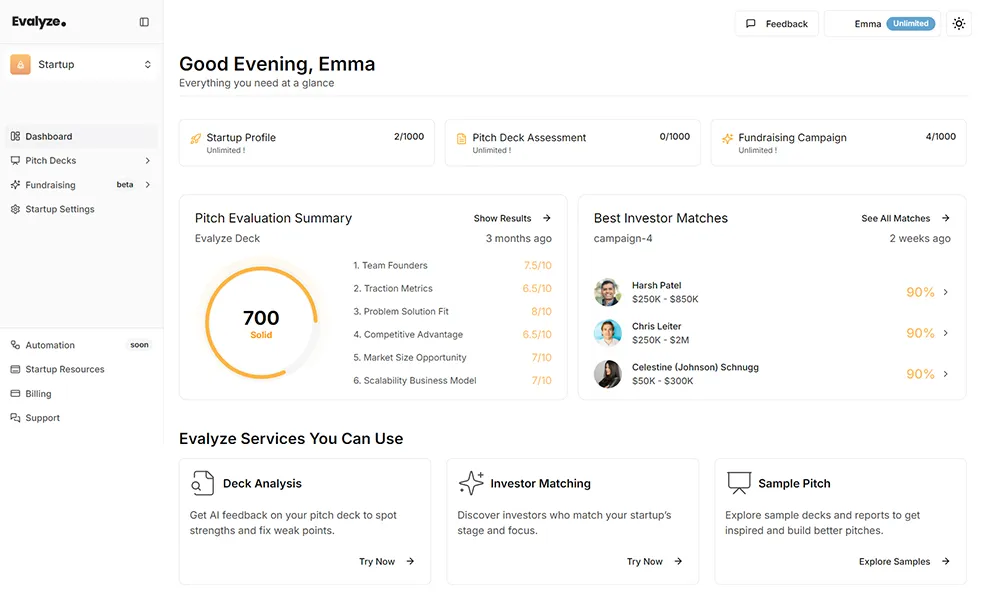
Your all-in-one headquarters for fundraising. Evalyze uses AI to match your startup with relevant investors based on stage, sector, geography, and traction. You can upload your deck, get your Investor Readiness Score, and manage outreach in organized campaigns.
⌛ When to use: Before and during your fundraising round, to test your materials, target the right investors, and replace spreadsheets with automation.
Save 20% on Evalyze Pro.
Use code 👉 Founder20 for full investor matching and advanced analytics.
2. Canva - Pitch Deck Design Made Simple
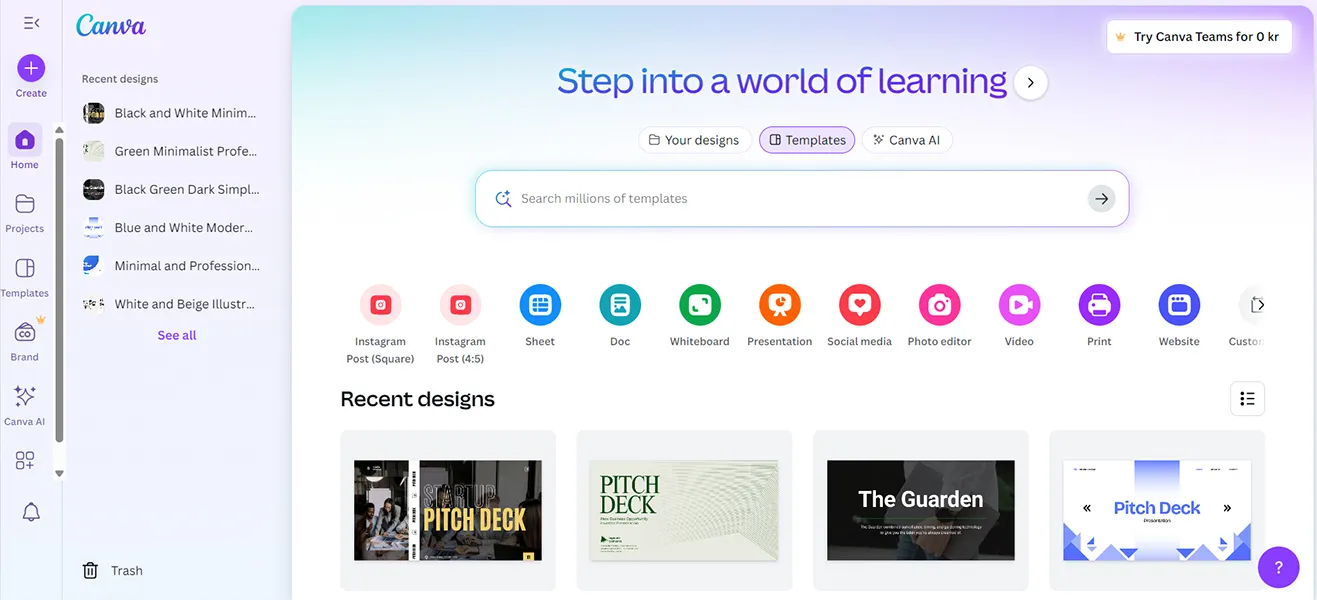
A favorite among founders for creating clean, consistent pitch decks and brand visuals without design training. Canva offers drag-and-drop templates and collaboration tools perfect for early-stage startups.
⌛ When to use: Before pitching your deck is the first handshake with investors. Make it sharp, visual, and on-brand.
Free Resources: 15 Best Free Canva Pitch Deck Templates for Startups
3. Notion - Your Fundraising Brain in One Place
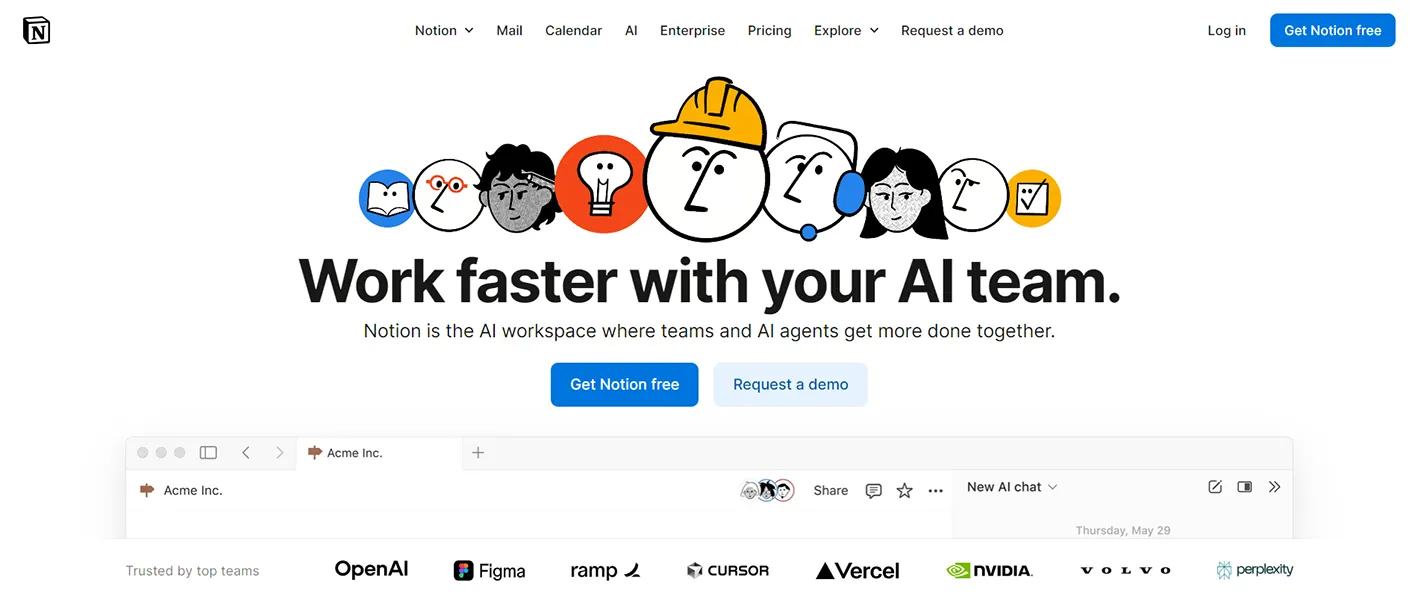
Part document hub, part lightweight CRM, Notion helps founders organize pitch materials, investor lists, and updates in one collaborative workspace.
⌛ When to use: Throughout your raise, use it as your “single source of truth” for your entire team and advisors.
Good To Know: Startup Due Diligence - The Complete Founder’s Guide
4. Airtable - Smarter Spreadsheets for Investor Tracking
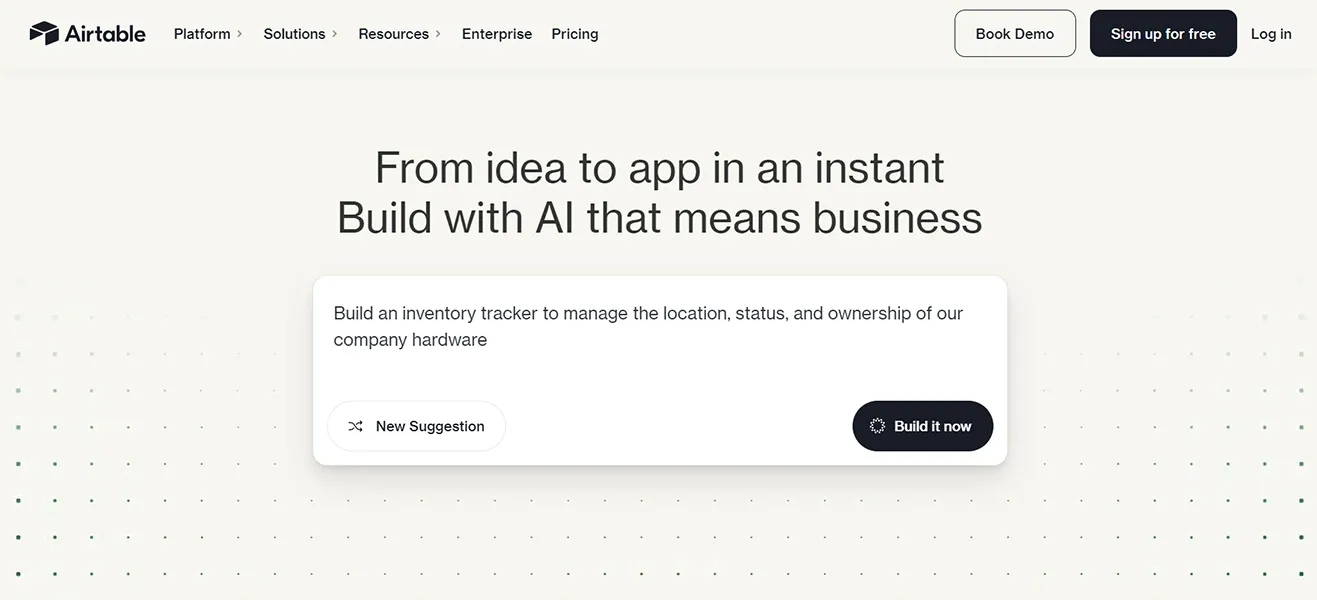
Think of Airtable as Excel meets CRM. It’s perfect for managing investor data, meeting notes, and follow-up stages with clear visual boards and filters.
⌛ When to use: For tracking your pipeline and keeping visibility on where every investor stands, contacted, in discussion, or closed.
5. Google Sheets - The Underrated Essential
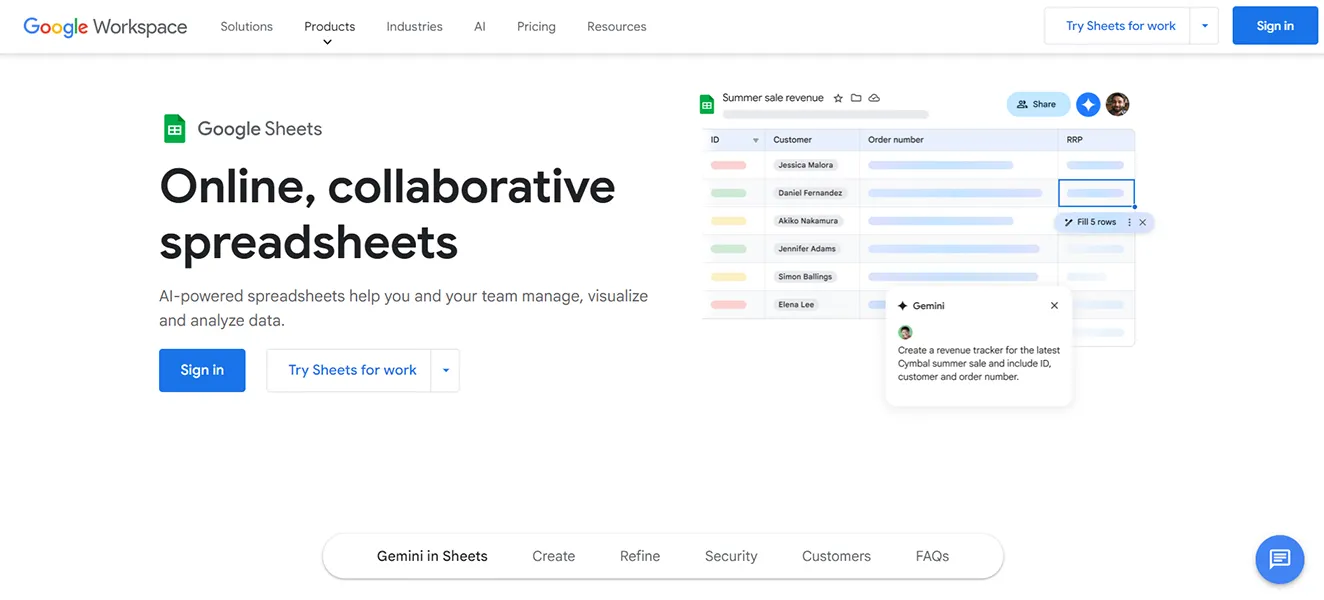
Simple, free, and incredibly flexible. Use it for financial models, cap tables, or tracking KPIs that investors care about.
⌛ When to use: Early in your fundraising prep, clarity on your numbers builds credibility faster than any pitch deck.
6. Pitch.com - Collaborative Deck Builder
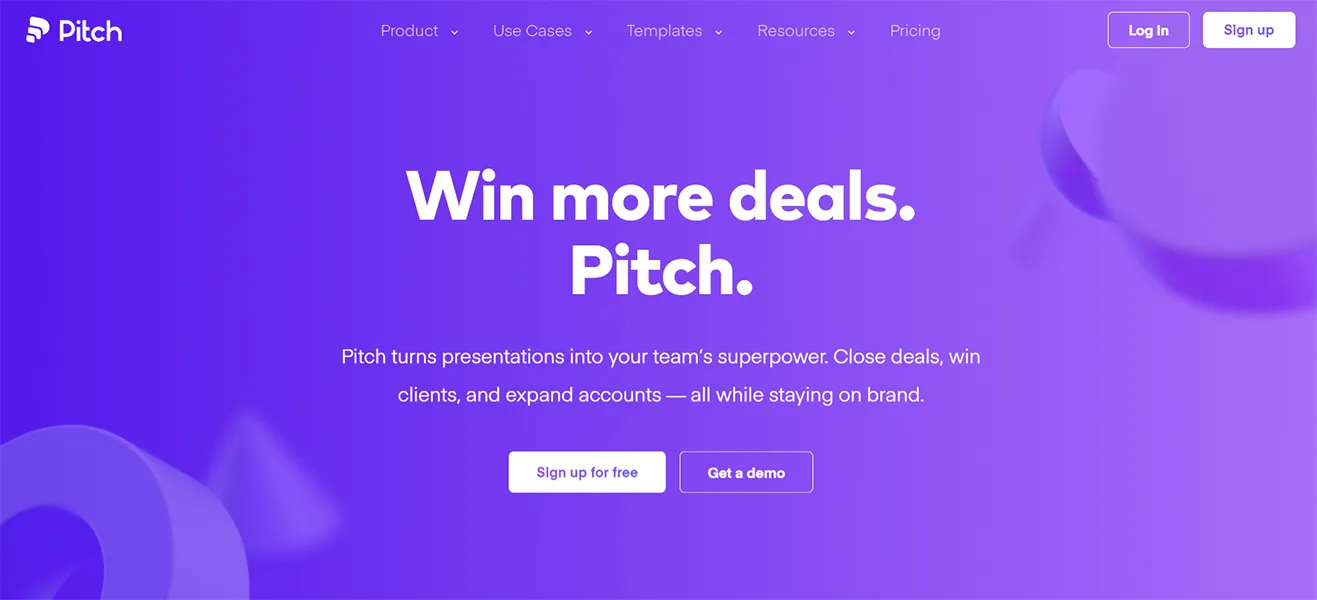
A slick alternative to PowerPoint built for teamwork. Pitch lets multiple founders or advisors comment and edit simultaneously, making iteration faster and cleaner.
⌛ When to use: While refining your deck narrative before investor presentations or demo days.
7. Figma - Product Mockups that Sell the Vision
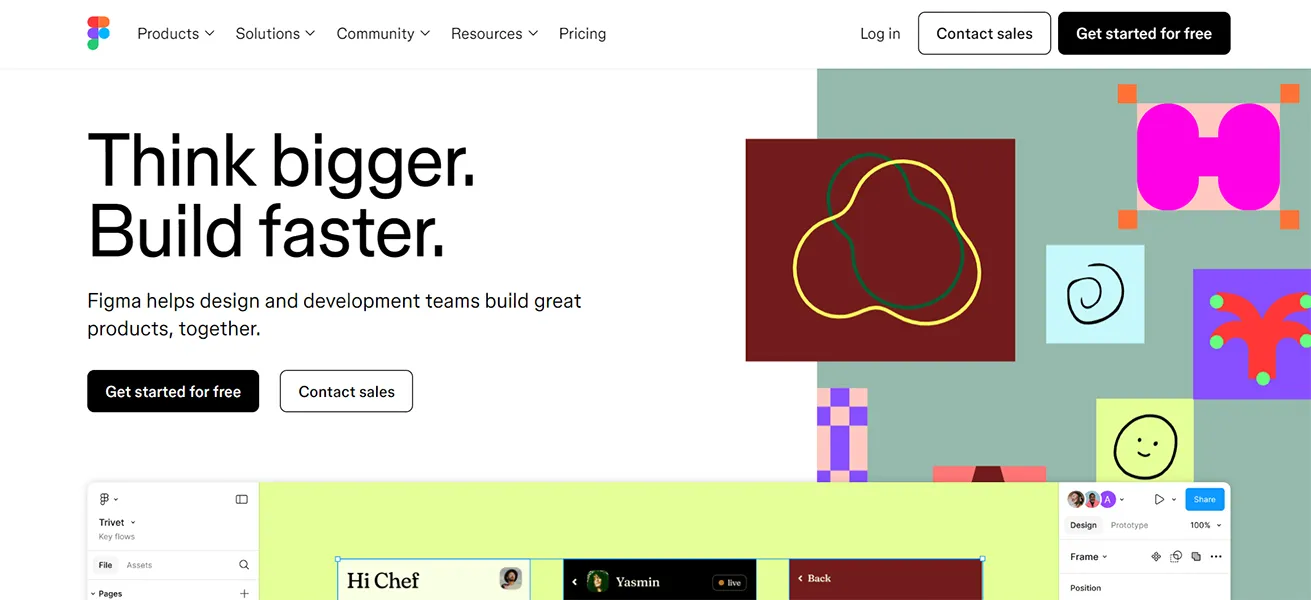
If your startup has a visual or product-driven story, Figma is unbeatable. Create clickable prototypes and visuals that make your product real to investors.
⌛ When to use: Before or during your raise, especially helpful when pitching pre-launch or early MVPs.
8. DocSend - Share Decks with Control and Insights
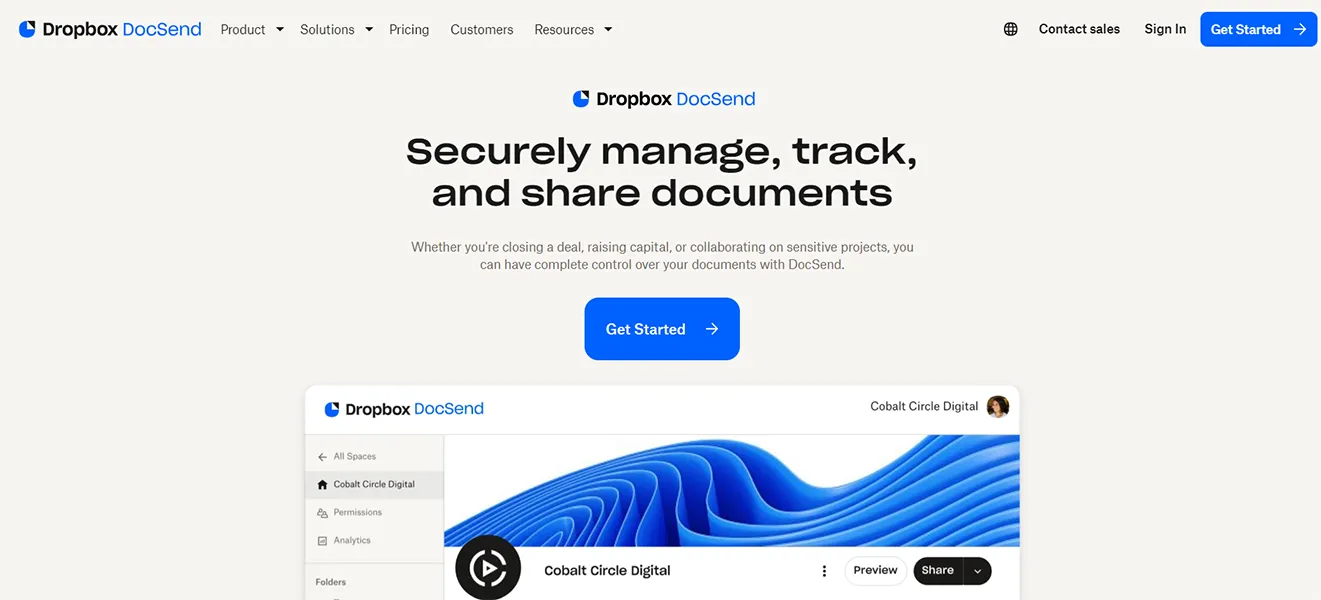
Upload your deck once and share a secure link instead of an attachment. You’ll know who viewed it, how long they spent per slide, and when to follow up.
⌛ When to use: During outreach and follow-ups, use view analytics to prioritize serious investors.
9. Hunter.io - Find Verified Investor Emails
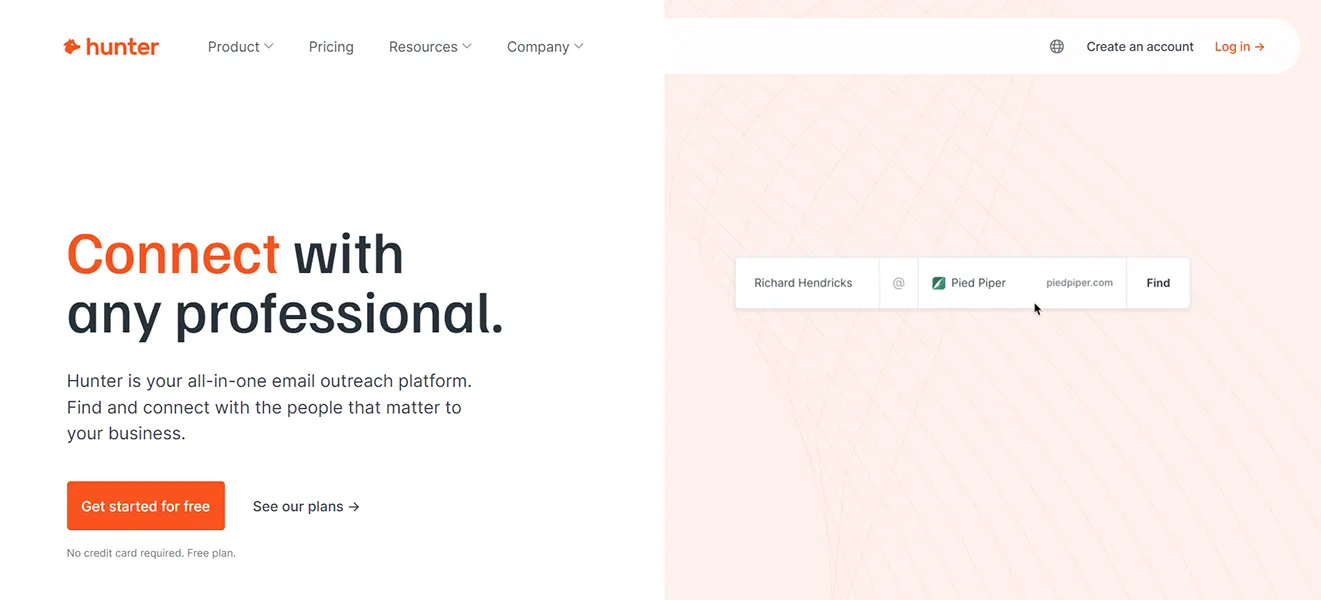
Hunter helps you discover accurate contact information from websites or LinkedIn, making cold outreach faster and safer.
⌛ When to use: When building your initial investor list and starting cold email campaigns.
10. Clay - Automate Investor Research
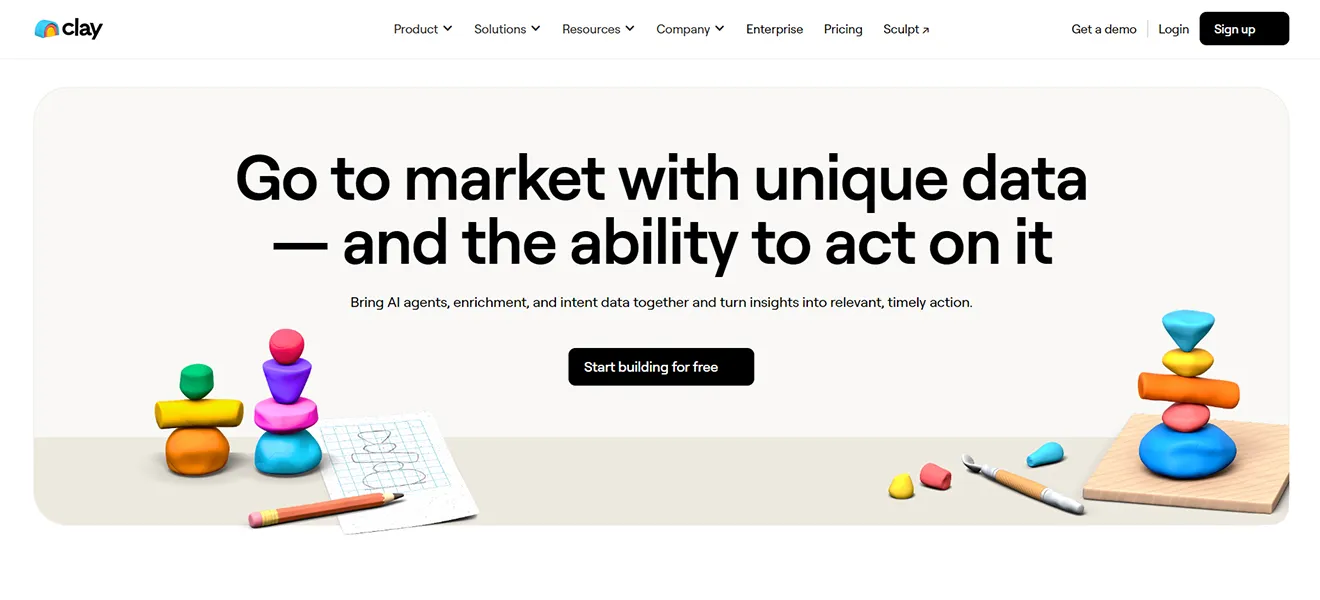
Clay connects to LinkedIn, Crunchbase, and email to enrich your investor list with detailed profiles, past deals, and social links.
⌛ When to use: Before outreach, personalize every message with context that investors actually care about.
11. Crunchbase - The Investor Research Engine
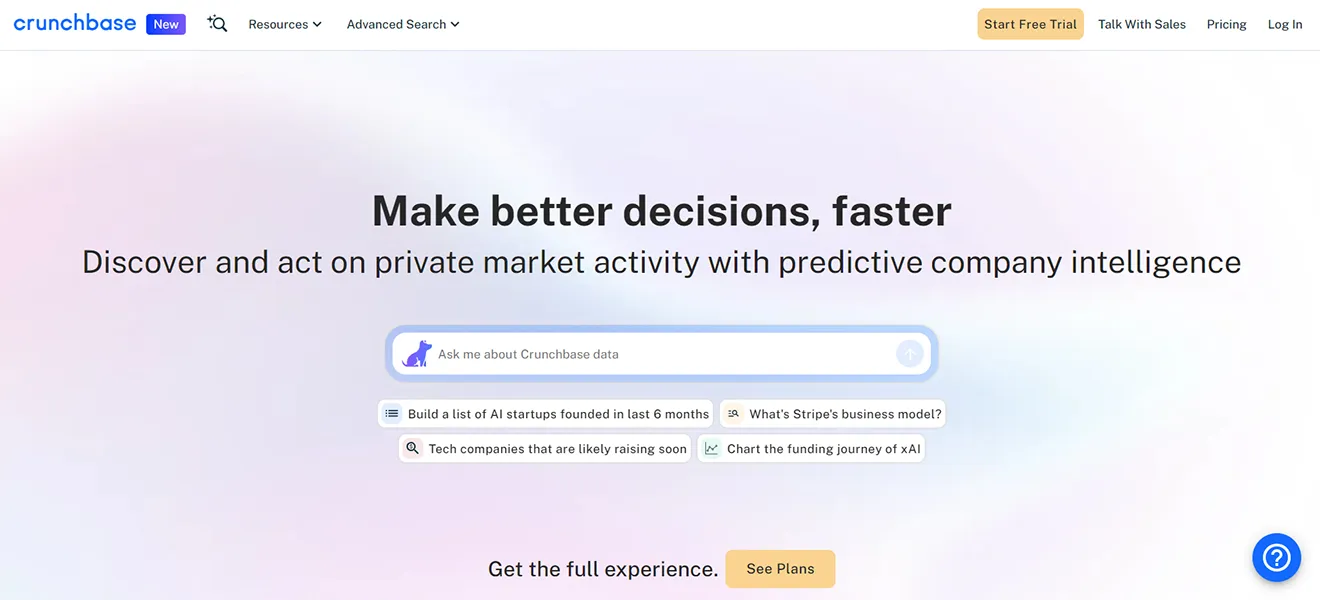
A must-have for understanding the funding landscape. Find active VCs, angels, and syndicates, and filter them by sector, geography, or cheque size.
⌛ When to use: Early in your fundraising journey to target investors who truly match your thesis.
12. LinkedIn Sales Navigator - Map Your Warm Intros
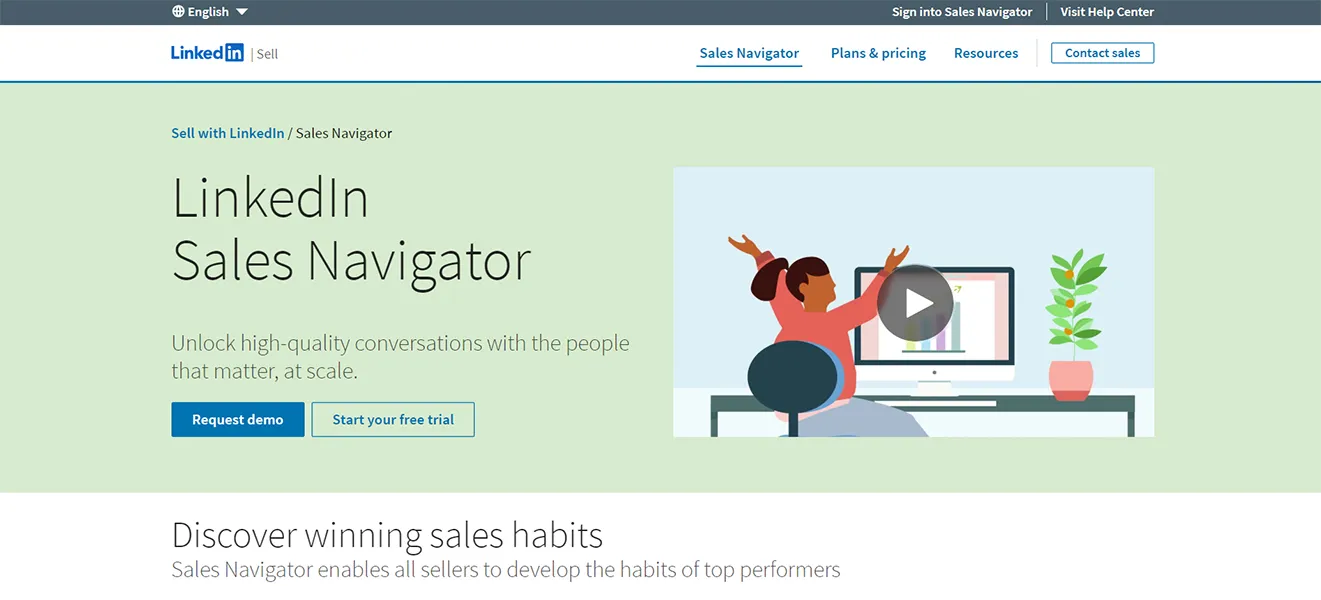
Use advanced search filters to find 2nd-degree connections and shared networks for introductions.
⌛ When to use: During warm outreach, a referral through mutual contacts increases your response rate exponentially.
13. Foundersuite - Fundraising CRM for Startups
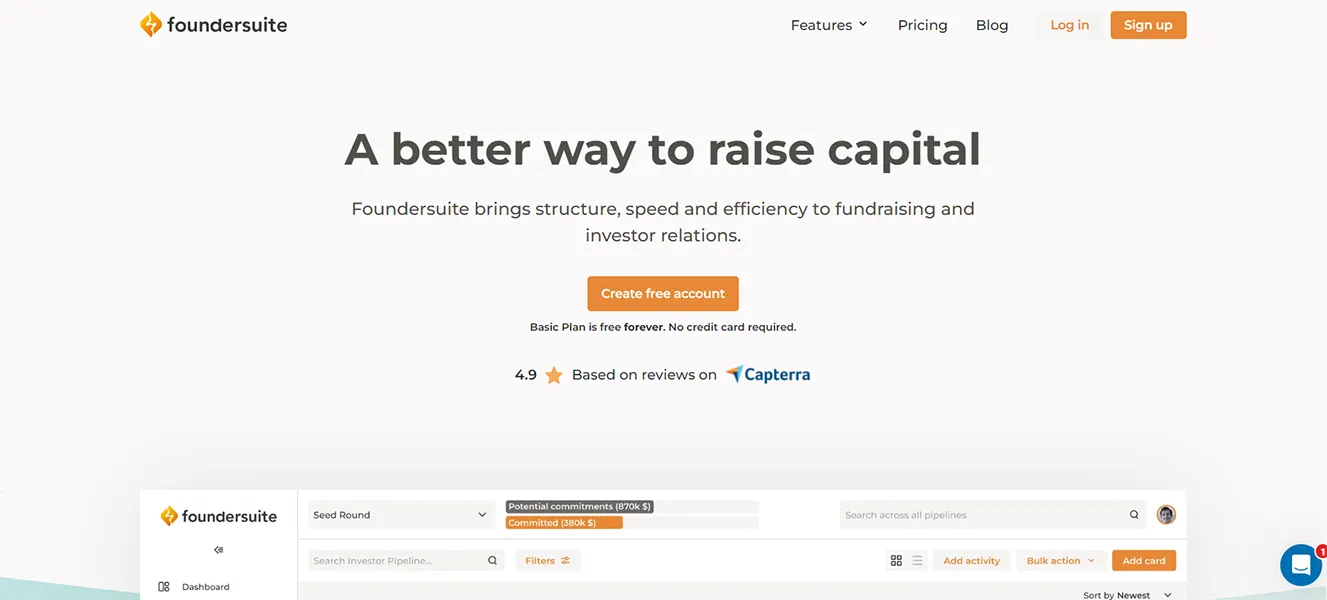
Purpose-built fundraising software that helps founders track investor conversations, send update emails, and monitor round progress.
⌛ When to use: As a lightweight CRM for managing your outreach before scaling to a full investor relations setup.
Also Read: How to Find Angel Investors for Your Startup
14. Trello - Visualize Your Fundraising Workflow
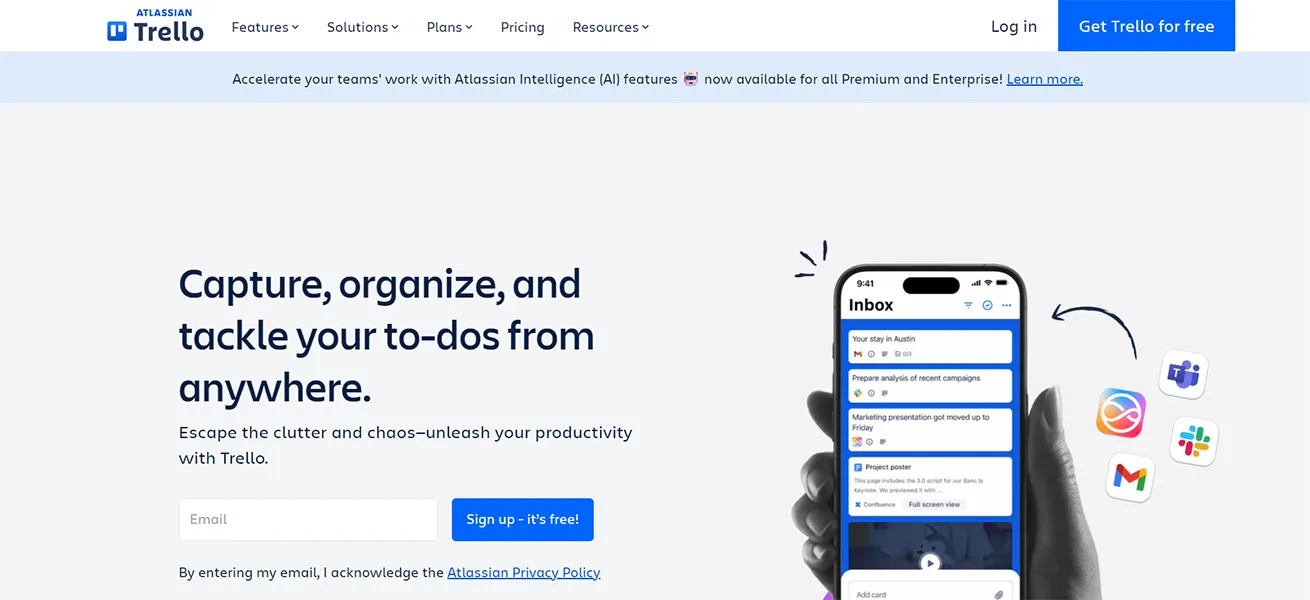
If you’re new to fundraising CRMs, Trello’s visual boards (cards and columns) help you see where each investor stands from “researched” to “term sheet signed.”
⌛ When to use: Throughout the fundraising process, keep your team aligned and progress visible.
15. Mixmax - Email Automation and Tracking

A Chrome extension that transforms Gmail into a mini-CRM. Track email opens, schedule follow-ups, and send personalized sequences.
⌛ When to use: For investor outreach, automate reminders, and maintain momentum without feeling robotic.
Great Resource: 7 Investor Follow-Up Emails: Templates, Timing & Cadence
16. DocuSign - Secure Digital Signatures
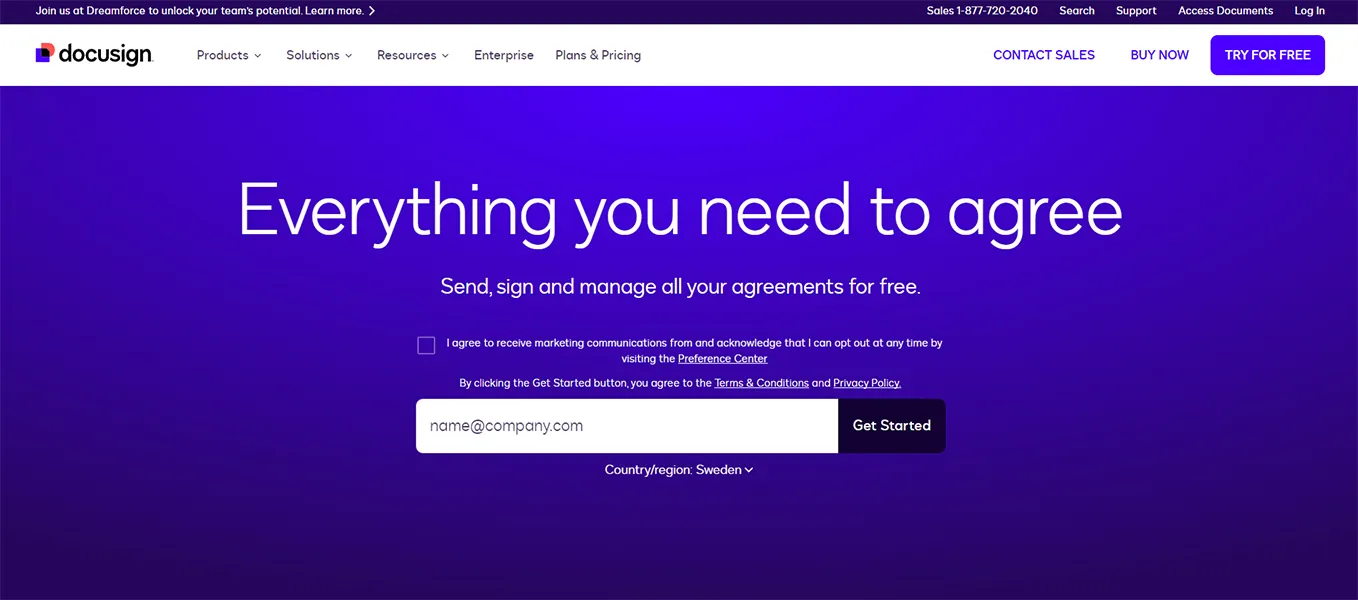
The standard for sending and signing legal documents like SAFEs, NDAs, and term sheets. Saves days of back-and-forth during closing.
⌛ When to use: In the final stages of your raise when paperwork turns into signatures.
17. Calendly - Schedule Without the Back-and-Forth
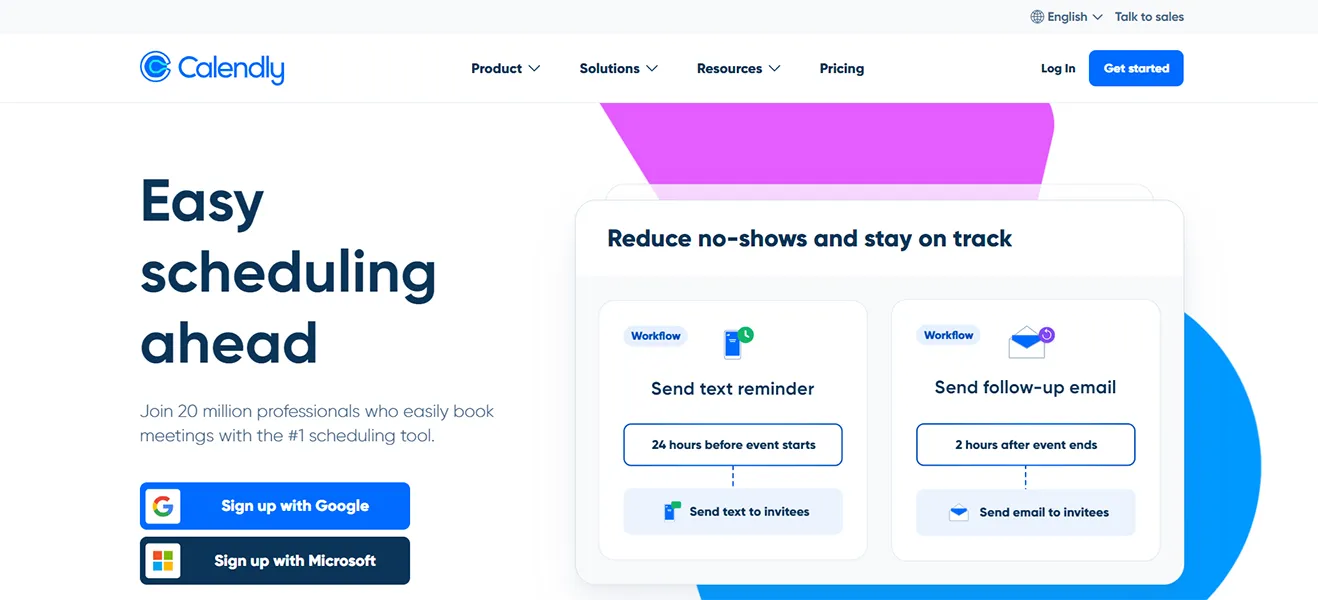
A small tool that makes a big difference. Let investors book meetings directly into your calendar based on your availability.
⌛ When to use: As soon as outreach begins, it signals organization and respect for everyone’s time.
18. Slack - Your Fundraising Command Center

Create private channels for your team or advisors to coordinate feedback, share investor updates, and keep communication transparent.
⌛ When to use: During the active fundraising phase, it keeps everyone aligned in real time.
19. Google Data Studio (Looker Studio) - Turn Numbers into Narratives
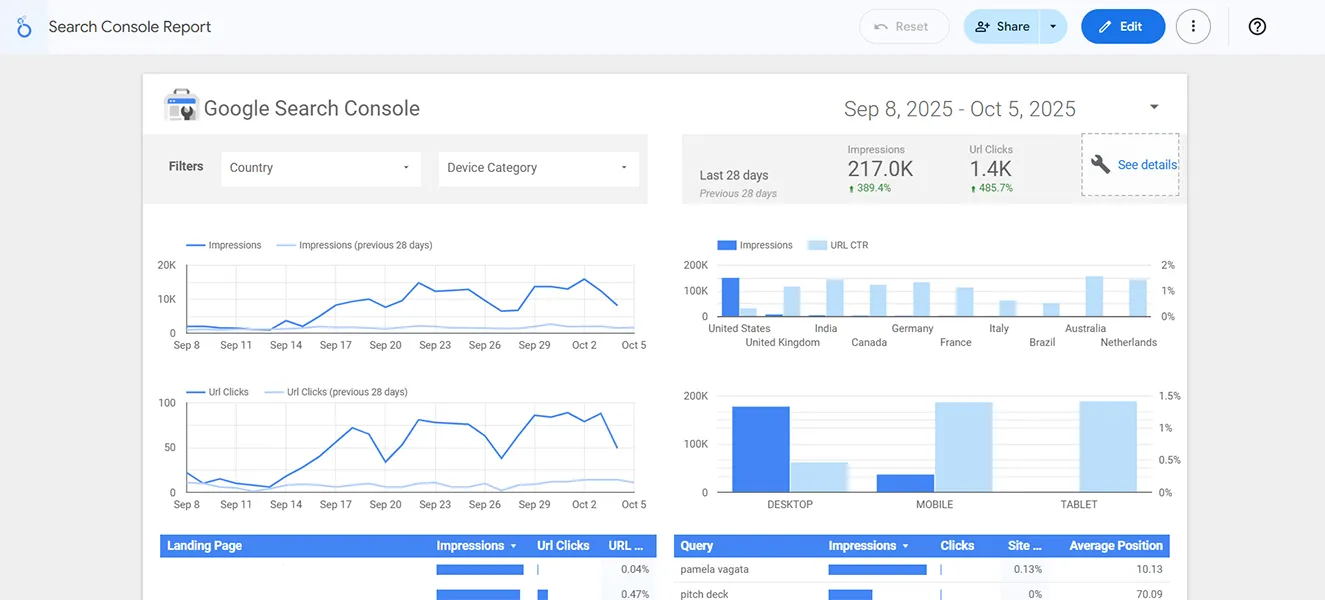
Visualize your traction metrics, growth curves, and retention data in easy-to-read dashboards. Investors love clear data stories.
⌛ When to use: Before or during investor updates, perfect for embedding in your data room or email reports.
20. Stripe Atlas - Incorporate and Get Investor-Ready
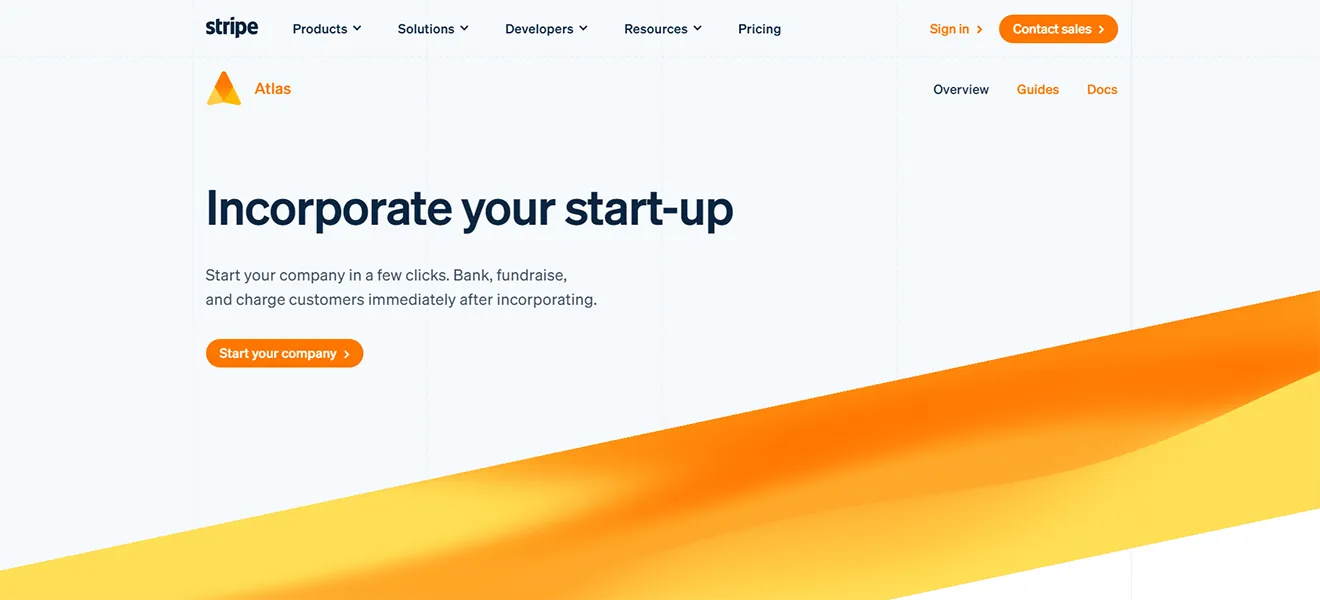
If you’re just starting out, Stripe Atlas helps you form a U.S. company, set up a bank account, and handle taxes all online.
⌛ When to use: At the very start of your journey to structure your company cleanly before approaching investors.
How to Build Your Fundraising Stack
Great fundraising is about choosing the right one for each phase of the journey. Think of it as building your own startup fundraising toolkit: plan, reach out, track progress, and close the deal. Consistency beats complexity every time.
1. Plan & Prepare
Lay the foundation with tools that keep your materials, numbers, and strategy organized.
Use: Notion, Google Sheets, Airtable, Figma, Evalyze.ai
2. Design & Present
Make your story clear, visual, and credible with easy-to-use pitch deck tools.
Use: Canva, Pitch.com, Figma
3. Research & Outreach
Find the right investors and reach out with precision using modern fundraising platforms and automation tools.
Use: Crunchbase, Hunter.io, Clay, LinkedIn Sales Navigator, Mixmax, Evalyze.ai
4. Track & Manage
Stay on top of investor conversations with fundraising CRM tools and simple workflow systems.
Use: Trello, Foundersuite, DocSend, Slack
5. Close & Report
When it’s time to seal the deal, these tools make signing, setup, and reporting smooth and professional.
Use: DocuSign, Stripe Atlas, Google Data Studio (Looker Studio)
FAQs
1. Are these startup fundraising tools really free?
Most of these free fundraising tools offer generous starter plans. You’ll get enough functionality to design your pitch deck, find investors, and manage outreach without paying anything upfront. Some may charge for premium analytics or team features, but the basics cover everything early-stage founders need.
2. How many fundraising tools should a startup use?
You don’t need all twenty. Start with four to six startup fundraising tools that solve your biggest needs, like organizing your materials, tracking investors with a simple fundraising CRM, or automating outreach. You can expand your stack as your fundraising process becomes more structured.
3. Is Evalyze a free fundraising platform?
Yes. Evalyze.ai is a free fundraising platform to begin with, you can analyze your pitch deck, get an Investor Readiness Score, and receive tailored investor matches before upgrading to Pro for advanced campaign tools.
4. Do I need all these tools before contacting investors?
Not all of them. The goal is to be organized and confident, not overloaded. A focused combination of fundraising software for planning, outreach, and tracking will make your investor communication smoother and more professional.
More Articles